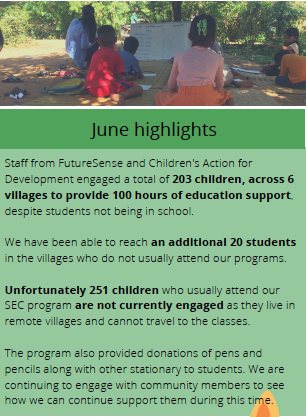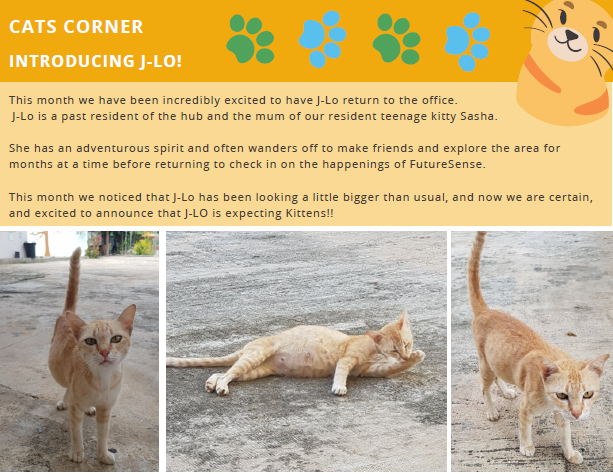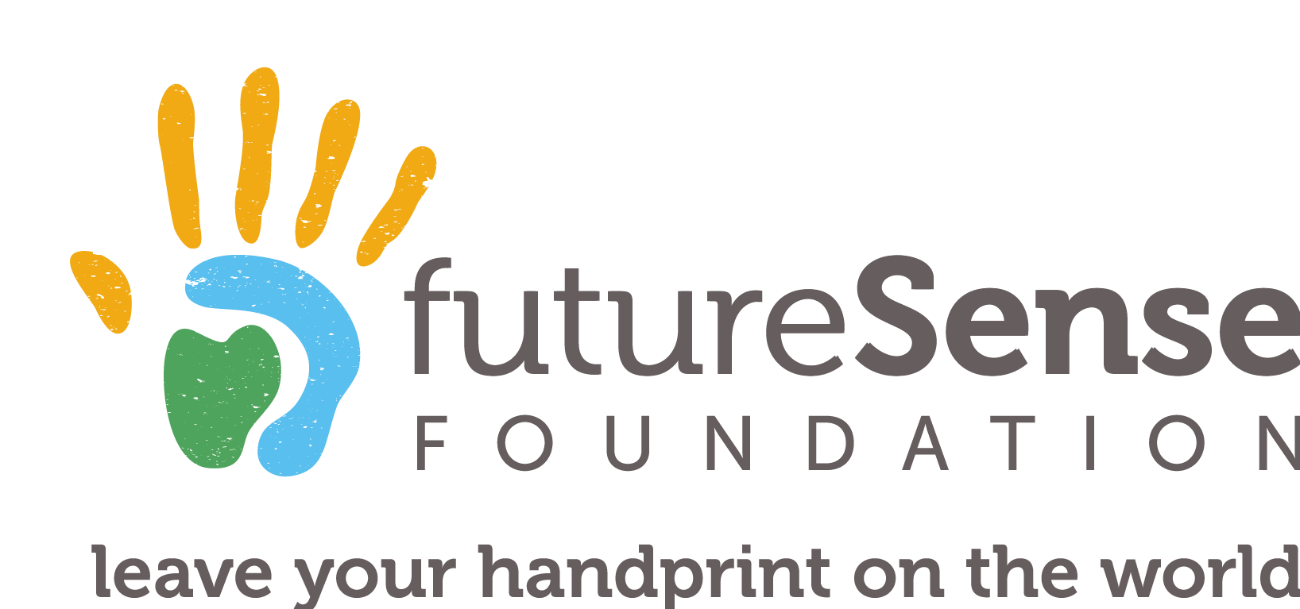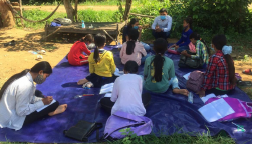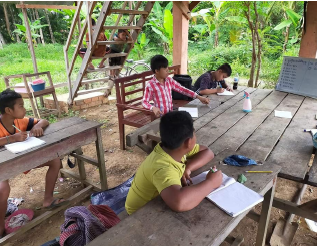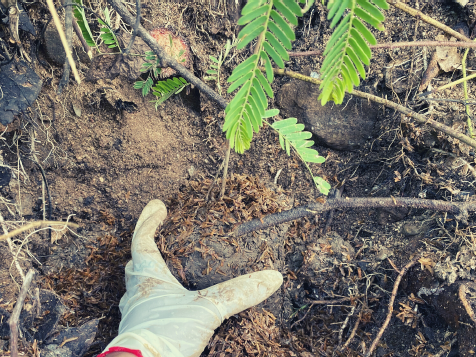Written by our Cambodia Team
Village visits continue as students adapt to a new normal.
With schools set to remain closed until the beginning of the new school year in November, Cambodian students are facing the reality of learning remotely for at least another 5 months. Across the country there an estimated two million students who are not able to access the government’s e-learning programs as they don’t have access to smart phones or satellite dishes in their homes to receive the broadcasts via TV.
This is particularly problematic for students from lower socio-economic backgrounds such as those who usually attend our supplementary education centres. In response to these challenges FutureSense is continuing to proactively support our partner organisation Children’s Action for Development to run classes in the villages where our students live. Continue reading below to learn more about the work of CAD from the organisation’s founder and Director, Racky, who we recently had the pleasure of interviewing and will be featuring in this and next month’s newsletters
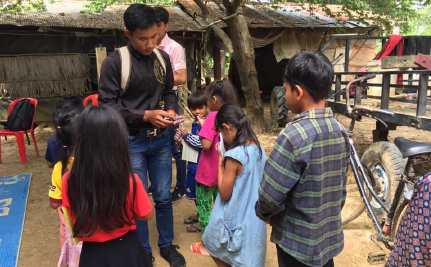
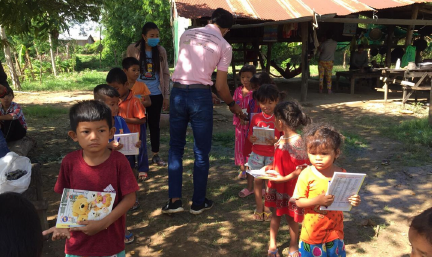
Progress Update: New supplementary education centre.
The FutureSense and Children’s Action for Development teams have been working hard to get the land for our new Supplementary Education Centre ready for construction in 2021. This month the focus has been on building strong fences around the grounds out of various materials such as brick and bamboo. These fences will form the parameter of the new centre, keeping the children safe once they are able to begin attending classes.
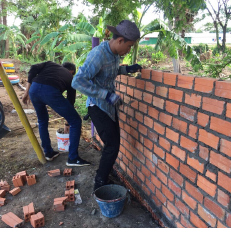
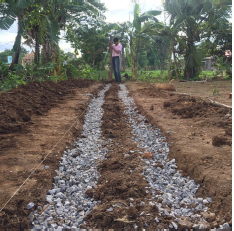
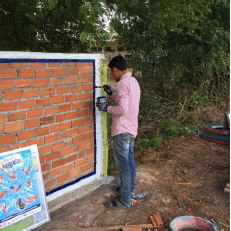
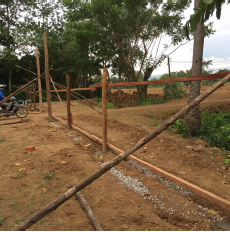
Program Spotlight: Supplementary education program
FSF has been supporting the SEC program in partnership with Children’s Action for Development since 2014 and provided 360 students each year with free supplementary education. The students are mainly low income or students struggling to pass exams and are provided with education support in Khmer and English literacy and math in addition to other academic areas. Children are also provided with a daily snack, access to clean drinking water and mentorship from their teachers and peer learning. Additional support through dance and computer class options as well as sessions delivered by FSF volunteers and staff provide even further education and engagement across many topics such as health, STEM, environmental sustainability, sport, and more.
We spoke with Racky, director of our partner organisation CAD to highlight the challenges of delivering this program during COVID-19 and how we are responding.
What have been some of the biggest issues that you are seeing in the villages and partner communities that we work with at the moment as a result of COVID-19?
“When Covid-19 came in Cambodia, there are many problem in community. Many people have no job, no income, and not enough food. The majority of people in community are construction workers who come back from Thailand, Malasia, now they are difficult to live. For people who grow the food, they do not have enough food because of no rain in their area, some area has rain but it is a little rain.
The children do not have opportunity to access education, and they are difficult to study from remote. The local businesses went down and the social economics went down. So many people who live in debt of Loan from Micro finance, they are difficult to make money to pay back to their loan.
Increased discrimination between people is also a big problem. Because they scare Covid-19, they do not want to do direct communication or buy something from minority group who have history of carrying Covid, especially people are scared of the Muslim people. And the community lacked preventing and protecting materials and the knowledge to keep their life safe from Covid-19.”
What are the challenges of remote learning during COVID-19?
“There are many challenges. Access to remote learning from Government is difficult for children and parent in community because they do not have smart phone or do not know how to use and TV. Or if they have smart phone and TV, but no internet access, and TV does not work well, sometimes they can see the picture, but no sound, and sometimes, they hear the sound, but not clear picture. In some areas, all equipment above do not work.
Many parents are in debt, they worried about Loan payment to the bank/micro finance Institution so they do not have strong commitment to encourage their children to learn at home, and they are busy to make money for food and pay loan.”
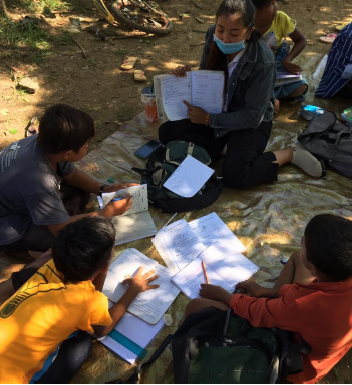
What is the role of CAD in responding to COVID- 19?
“During Covid-19, we are doing distance learning and supporting e-learning to the children in community. First, our 10 community teachers worked with the government teachers to disseminate the letter from Ministry of Education No.23 to parents and children in community directing them to learn at home and for parents to teach them too.
Second, we visit the community to meet with 5-8 children a group and teach them under that tree or at the house of people or wherever that we can teach the children.
Third, according its possibility, we provided rice and food, face-masks, hand-washing information, poster on preventing and protecting Covid-19 infection and some education on the ways of preventing and protecting Covid-19 infection to the children and parents, especially older people.”
